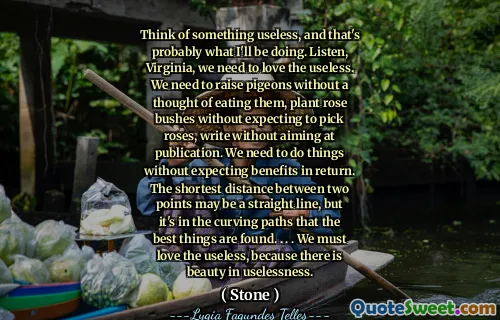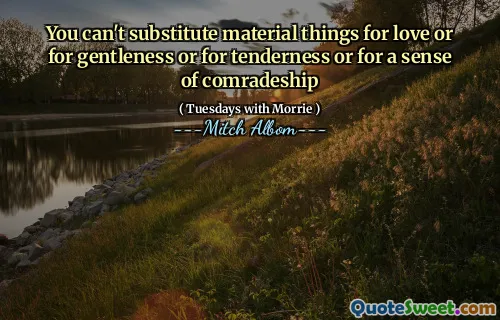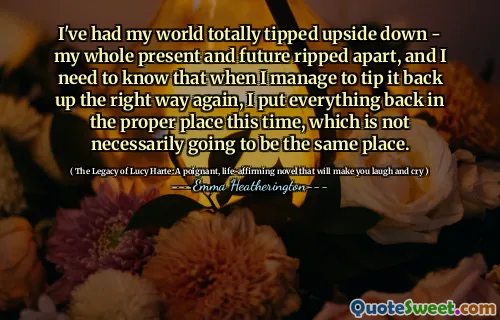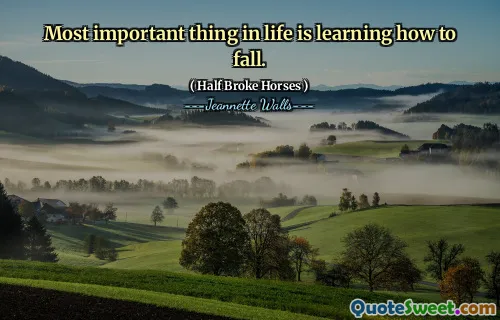
Think of something useless, and that's probably what I'll be doing. Listen, Virginia, we need to love the useless. We need to raise pigeons without a thought of eating them, plant rose bushes without expecting to pick roses, write without aiming at publication. We need to do things without expecting benefits in return. The shortest distance between two points may be a straight line, but it's in the curving paths that the best things are found. . . . We must love the useless, because there is beauty in uselessness.
This quote beautifully emphasizes the importance of finding value and beauty in activities that lack immediate practical purpose. In a world driven by productivity, efficiency, and tangible outcomes, the act of engaging in seemingly 'useless' pursuits often gets undervalued or dismissed. Yet, as the quote suggests, there’s a deep and intrinsic worth in these endeavors—they foster creativity, patience, mindfulness, and joy for their own sake. When we raise pigeons without the intent to eat them, we connect with the simple pleasure and companionship they offer; planting roses to nurture beauty rather than for aesthetic gain encourages us to appreciate the process, not just the final bloom. Writing without the goal of publication reinvigorates our intrinsic love for the craft, free from external validation. Moreover, the metaphor of the curving paths reminds us that genuine fulfillment often comes from exploration, serendipity, and wandering away from rigid plans. Embracing uselessness can liberate us from societal pressures to always be productive, allowing us to discover unexpected sources of happiness, insight, and even inspiration. This perspective invites us to cherish activities not for their utility but for their ability to enrich our inner life, reaffirming that sometimes, the most meaningful experiences are those that seem purposeless at first glance but lead us to profound understanding and joy.






